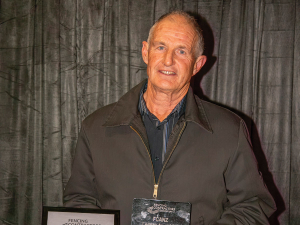Future leaders should be identified now and given opportunity to show latent skills, perhaps by taking on issues that are not popular. Some may have to go find a ladder.
The opportunities for an aspiring leader are not as easy to find as during the 1970s and early 1980s. Those were the days when Young Farmers Clubs and Federated Farmers provided a soapbox for those who had found a ladder and were already climbing.
After the Feds was gutted by Rogernomics in the late 1980s, the organisation struggled to find a meaning for its existence. The many branch offices it had throughout rural New Zealand (there was even one in ‘jafa’ country – Ponsonby Road, Auckland!) mostly closed the doors and died.
Then came the time when farming needed to be grooming future leaders.
The reality is that though farming companies such as Alliance or Silver Fern Farms appear to have enough directors, long term the cupboard is bare. This should be a worry: finding replacements for our present leaders. Most of the incumbents are likely to hang on until they hit 70, allowing minimal time for the industry to start preparing.
The inevitable fallout of men and women from the ‘baby boomer bulge’ is just around the corner. It could be an opportunity for a generation waiting for the call.
The gutsy efforts of the Meat Industry Excellence group has supporters ideally placed, given time, to move quickly up the ladder. In recent weeks we have seen them in action. They are young, motivated and have a plan that reads well. How long they last, I suspect, will depend on funding. At this stage, the likelihood is they are paying their own way.
I believe the next decade will see many new faces at boardroom tables; it’s important to ensure they include top performers.
Former Silver Fern Farms chairmen Robbie Burnside and Reece Hart have accepted the challenge of developing the Burnside/ Hart Cooperative Education Trust, aimed at up-skilling people with leadership aspirations. Since it started in 2008, at least 100 people have taken intensive leadership courses. So far three courses have been held at Invermay and one in Ashburton. Numbers are held at 25.
Burnside has extensive experience as chairman of a wide range of companies and cooperatives. He was chairman of Silver Fern Farms for 18 years. He has seen and been part of farming politics and understands how systems work. His advice for those coming through the ranks is to realise decisions are made in the boardroom and by those near the top.
Being seen on the ladder is important and certainly much harder these days, with only minimal help available from organisations such as Federated Farmers or the now almost forgotten Electoral College which helped selection to the Meat and the Wool Boards.
The most exciting feature of the Burnside Hart Trust is its scope. Although driven by Silver Fern Farms, its brief is to be available to all potential or up-and-coming farming leaders.
At this stage, it is achieving that goal by attracting participants from throughout New Zealand. People are attending from a range of positions including some from southern meat processors.
• John Stirling is a south Otago farmer who formerly was the agricultural editor for the Otago Daily Times.
















